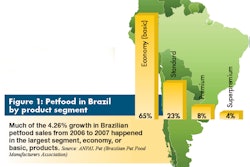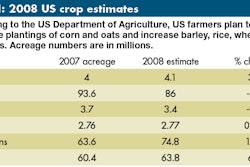This past year drew massive attention to product safety issues. Several recalls, including petfood, have led to reduced public confidence in product safety. Companies struggling with product recalls have suffered from loss of reputation, damage to their brands and businesses and defense and liability costs.
Six ground rules
Long before a risk becomes a reality, notes insurance expert Donna Wilson of Kelley Drye & Warren, consumer product companies (regardless of their place in the supply chain) should make insurance a key component of their risk management program by following these ground rules:
1. Anticipate risks and insurance needs. Make sure your company's risk management team and legal counsel meet at least annually to discuss risks and anticipated exposure, review past claims experience and analyze developments in the industry.
2. Negotiate for the best coverage. Seek competing bids and negotiate for the coverage needed if the insurance initially offered would not adequately protect your company.
3. Avoid being penny-wise and pound-foolish. Do not forego additional coverage without first taking the long view and carefully considering the risks of doing so.
4. Procure sufficient insurance coverage. Decide which policies your company should purchase. Consider the following:
5. Seek supplier assurances. Talk to your suppliers about purchasing sufficient insurance coverage.
6. Carefully review your company's policies. Your company's risk manager should review draft insurance policies before they are issued, paying close attention to potential exclusions. All policies should be copied electronically and secured off-site; do not rely on the broker alone to safeguard them.
Do not accept "no"
In the event your company is denied coverage, be persistent. Do not accept "no" for an answer.


.png?auto=format%2Ccompress&fit=crop&h=167&q=70&w=250)
.png?auto=format%2Ccompress&fit=crop&h=167&q=70&w=250)













